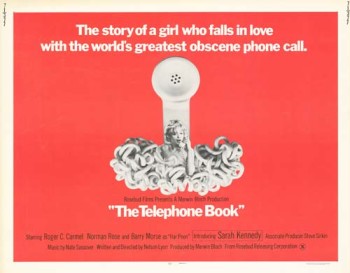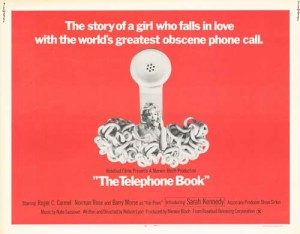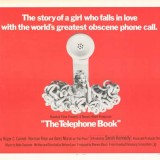
DVD Review: The Telephone Book
What We Liked
What We Didn't Like
Sexually-liberated Alice goes down a different kind of rabbit hole in sleazy 1970s Manhattan searching for the voice on the other end of an obscene phone call we never hear completely, but that presses all of her buttons in The Telephone Book (1971) – an unjustly overlooked, raunchy satire given fresh life by the impressive restoration efforts of upstart DVD/Blu-ray label Vinegar Syndrome – already boasting an initial 2013 slate of cleaned-up, eclectic discoveries – restoring lush, colorful lighting to what were surely scratched, chopped, and oily prints of movies never fated for such meticulous curating.
[springboard type=”video” id=”736289″ player=”cnim002″ width=”560″ height=”315″ ]
Watching The Telephone Book surprised me at every turn – trumping even Andy Warhol and Paul Morrissey in its free-free form, light avant-garde, sketch-comedy-style vignettes around one woman’s determined quest for erotic fulfillment (even if it does retain some of the decade’s sexist foundations, it was surely a step in the right direction to even broach the subject of female urges).
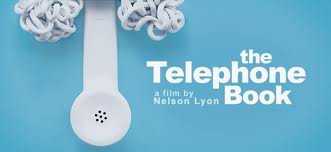
The decor and ennui of The Telephone Book owes a debt to those counter-culture trend-makers, but the playful atmosphere and approach of the film is perhaps more directly an evolution of the nose-thumbing comedy of TV’s Laugh-In, the early “funny” ones of Brian De Palma starring Robert De Niro (Greetings 1968, Hi Mom! [1970]), and particularly the proudly-pervy writing of Buck Henry (Candy [1968], Is There Sex After Death? [1971]). Gaining initial fame with his screenplay for The Graduate (1967) and then through a series of leering, horny, caricatures commenting on the male id in his appearances in movies and on early Saturday Night Live, Henry was a minor pioneer in teasing out American culture’s reticence to talk openly about sex.
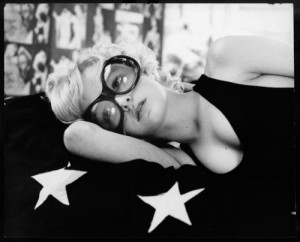
After Alice hears the disembodied heavy breathing and torrid come-on’s of her dreams (the snatches we do hear are surreal, hilarious non-sequiturs) from a man we only see as an unsettling mouth in a phone booth, she is determined to find this intriguing creeper identifying himself only as “John Smith…I’m in the phone book.”
The path to find her aural delighter (“It was only a phone call, but it was a work of art!” she enthuses) takes Alice through a decayed, red-light 42nd Street district in a series of episodic adventures: encountering an imposter “John Smith” wearing Groucho glasses and auditioning a bedful of starlets for his return to stag-film glory as the great “Har Poon”; famed old-man actor William Hickey (National Lampoon’s Christmas Vacation [1989]) appears later as a young man plagued with the effects of Viagara three decades too early). On a subway ride Alice offers a feminist twist when confronted with the old “flasher” gag – detour vignettes that remind me of the loose, inquisitive, playfully-aggressive nature of notorious Czech New Wave classic I Am Curious (Yellow) (1967). These detours eventually lead to the man behind the voice behind a really creepy pig-mask (which I assume symbolize male chauvinism, but he merely claims “I’m theatrical”) laying down his philosophy to an enraptured Alice in an extended digression into male thought and libido that proves The Telephone Book to be an incisive, abstract take on the era’s reshaped mores and their effects on the American male psyche.
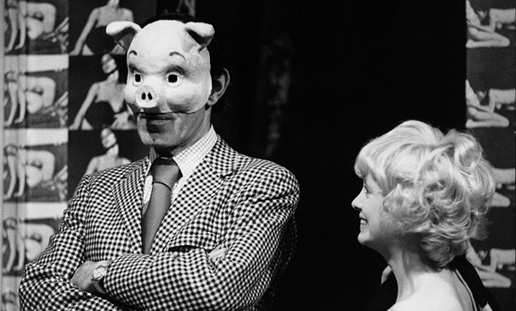
The Telephone Book is an assured, complex sex comedy from a time when you could do this sort of thing; it will surely find a deserved cult of appreciation thanks to the glittering Blu-ray from a new company with a growing buzz from cult movie fans around their well-selected, meticulously-restored B-movie roster.
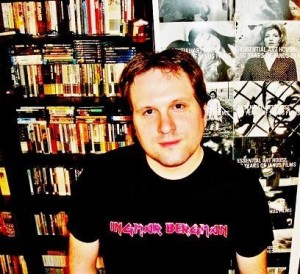
Gregory Fichter

Latest posts by Gregory Fichter (see all)
- Bela Lugosi’s Not Really Dead: A Vampire Movie Primer - November 18, 2011
- Ten Great Summer Grindhouse Movies - August 16, 2011
- The Ten Best Johnny Depp Movies - May 19, 2011


